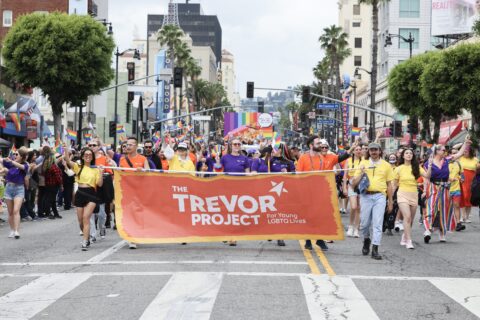An independent review of popular AI tools has found that many — including Snapchat’s My AI, DALLE, and Stable Diffusion, may not be safe for kids. The new […]
Google is opening up its Bard AI chatbot to teenagers
Google is opening up access to Bard, its conversational AI tool, to teens in most countries around the world. Teens who meet the minimum age requirement to manage their […]
‘Fortnite’ players can now report others using voice recordings. Here’s how.
Fortnite players will now be able to report other players for abusive behaviour using audio recordings.
Teens weren’t allowed to use Google Bard — until now. What’s changed with the ChatGPT alternative?
Google has expanded access to Google Bard for teens.
Kindle Paperwhite Kids review: A tech gift for little bookworms
It’s not screen time. It’s tech-enhanced reading time. See if the Kindle Paperwhite Kids is worth buying this Black Friday.
Meta and Snap latest to get EU request for info on child safety, as bloc shoots for ‘unprecedented’ transparency
Meta and Snap are the latest tech firms to get formal requests for information (RFI) from the European Commission about the steps they’re taking to safeguard minors on […]
The Trevor Project leaves X as anti-LGBTQ hate escalates
On the one year mark before the next presidential election, LGBTQ organization the Trevor Project announces its leaving X/ Twitter amid escalating hate and online vitriol.

With the 2024 presidential election is just a year away, advocates are doing everything they can do bring attention to the country’s most pressing social justice issues. Today, national LGBTQ youth organization the Trevor Project announced it is leaving X (formerly Twitter) amid growing anti-LGBTQ sentiment, both online and off.
“LGBTQ young people — and in particular, trans and nonbinary young people — have been unfairly targeted in recent years, and that can negatively impact their mental health. In 2023, hundreds of anti-LGBTQ bills have been introduced in states across the country, which can send the message that LGBTQ people are not deserving of love or respect. We have seen this rhetoric transcend politics and appear on social media platforms,” the Trevor Project said in a statement.
Mark Zuckerberg vetoed attempts to address teen mental health on Meta platforms, new lawsuit alleges
On Nov. 9, the organization posted the following message on its page:
The Trevor Project has made the decision to close its account on X given the increasing hate & vitriol on the platform targeting the LGBTQ community — the group we exist to serve. LGBTQ young people are regularly victimized at the expense of their mental health, and X’s removal of certain moderation functions makes it more difficult for us to create a welcoming space for them on this platform. This decision was made with input from dozens of internal and external perspectives; in particular, we questioned whether leaving the platform would allow harmful narratives and rhetoric to prevail with one less voice to challenge them. Upon deep analysis, we’ve concluded that suspending our account is the right thing to do.
A 2023 survey of LGBTQ teens conducted by the Trevor Project found that discrimination and online hate contributes to higher rates of suicide risk reported by LGBTQ young people.
In June, GLAAD marked X as the least safe social media platform for LGBTQ users in its annual analysis of online safety, known as the Social Media Safety index. The report cites continued regressive policies, including the removal of protections for transgender users, and remarks by X CEO Elon Musk as factors in creating a “dangerous environment” for LGBTQ Americans.
In April, a coalition of LGBTQ resource centers nationwide formally left the platform in response to the removal of hateful conduct protections for both LGBTQ and BIPOC users, saying in a joint statement: “2023 is on pace to be a record-setting year for state legislation targeting LGBTQ adults and youth. Now is a time to lift up the voices of those who are most vulnerable and most marginalized, and to take a stand against those whose actions are quite the opposite.”
Protections for the LGBTQ community and reproductive health access are expected to be a flashpoint in the upcoming election cycle, especially amid Republican candidates. At the same time, social media platforms and the online spaces they create, are facing a growing call to address the rise of hate-filled content and misinformation — now exacerbated by astonishing rise of generative AI tools — that disproportionately affect marginalized communities.
The Trevor Project directs any LGBTQ young people looking for a safe space online to its social networking site TrevorSpace.org or its Instagram, TikTok, LinkedIn, and Facebook accounts: “No online space is perfect, but having access to sufficient moderation capabilities is essential to maintaining a safer space for our community.”
Tech workers turned sex workers: why they changed careers
Sex workers who used to work in the tech industry reveal why they pivoted, and express how they enjoy their new jobs.

As tech workers resist return-to-office mandates, face layoffs that cut into hard-won diversity and equity progress, and watch as their dreams of founding successful startups dry up, it’s safe to say that many might be looking for new professions. Facing sexism and discrimination in the corporate world, and driven by a desire to have a more localized, creative, and empathetic impact, a quiet subset of tech workers left the tech industry to pursue work they’d rather be doing — in the field of sex work.
Whether as erotic filmmakers, professional dominatrixes, or as more traditional escorts, these former tech workers cite a significant increase to their sense of empowerment, job satisfaction, creative license, and overall freedom in their new professions. They share a universal disinterest in returning to tech workplaces — but an underlying confidence that they could, if tech employers one day began to prioritize factors to retain diverse talent. Their stories are inspiring to anyone looking for permission to pursue their true professional aspirations, and also a notice to tech employers, who continue to lose out on the potential of some of their most motivated and capable workers.
Sexism and career stagnation
“I really did experience sexism at every turn in my [corporate] career,” shares NYC-based professional dominatrix, Mistress Serafina. “From my first interviews out of college, I was propositioned by my interviewers, then I was propositioned by the principal engineer at my first job. I was repeatedly looked over for opportunities, and told in my performance reviews that my tone was too fiery.” Serafina recounts her story readily, in hopes that speaking up will remind others who experience discrimination, that they aren’t alone. Her frustration is palpable when she shares the experience of fighting a system where she felt set up to fail.
Serafina’s temperament, which led her to director-level positions in the startup world, despite the uphill fight against sexism, is more openly celebrated now in her new profession. “I learn a lot about myself through the work too; I treat myself as an art project.” says Serafina. “My natural characteristics are appreciated and I have the opportunity to explore myself.” Serafina was a long-time patron of the BDSM world before she began working in it professionally. Her personal experiences and her personality were appreciated in a community of professional dominatrixes, where she apprenticed and refined her skills.
Serafina’s experiences are echoed by sex workers across the field. “I get more genuine respect from men as a sex worker than I ever did in the tech industry,” says Mistress Fae, another software professional turned full-time dominatrix in NYC. Mistress Fae’s tech career ended after several years, after eventually capping out with similar frustration to Serafina’s, where her professional potential felt squandered by an environment of sexism and lack of growth opportunity. “I left the industry after I felt like I’d hit a ceiling and had nothing left that I wanted to accomplish. I was burnt out and frustrated with the short-sighted Silicon Valley tech bubble mindset. No amount of money is worth returning to a field where I felt minimized, degraded, and devalued.”
“I get more genuine respect from men as a sex worker than I ever did in the tech industry.”
A call to do what matters
“I often wonder what it would be like if the big tech companies were run by more individuals who valued creativity,” muses Evana, who requested the use of a pseudonym to protect her identity. Evana is a San Francisco-based escort, whose career took them from the most elite of colleges, to the biggest name companies in Silicon Valley, and eventually to a more content and fulfilling career in sex and intimacy work. “Part of me was just not being nourished [in the tech industry]. My mental health was being drained. I ultimately left for diversity reasons — not just demographic diversity, but diversity in the way people around me thought about the world more expansively.”
“Intimacy is low in this world,” continues Evana. “When I first started sugaring [professionally dating], I was pretty miserable as a software engineer. Intimacy work was immediately more fulfilling — I connected with the fact that people are just so lonely. This is actually important work for our society.”
Evana’s sentiment is shared by the other workers. “I am actually making an individual impact,” says Mistress Serafina. “If I could compare it to what I was doing in tech, it felt like I was working in a completely virtual world — my results were just numbers on a spreadsheet. Now they’re to fulfill people’s fantasies and make an actual impact in a person’s life.” All of these workers value seeing their labor making a real-world impact, and are happy to hop off the corporate ladder and payroll, for the chance at a more expressive and directly impactful profession.
Want more sex and dating stories in your inbox? Sign up for Mashable’s new weekly After Dark newsletter.
Fulfillment and giving back to the community
“I find sex work and just generally the umbrella of erotic creativity — whether it’s filmmaking or writing or sexual spirituality (tantra, philosophies of eroticism), sex education — the whole umbrella has always been intellectually and creatively inspiring to me,” says Val, an erotic filmmaker and sex worker community leader. In addition to their creative projects, Val is passionate about building online communities for sex workers, in a time where sex workers are banned and censored all across digital platforms. “Now that I’m building tech with other sex workers, I’ve learned how powerful it can be to design from the margins — there’s a real rawness, realness; a shamelessness that’s extremely powerful.”
Val and their team are working on challenging norms of the tech industry, that disempower and censor marginalized communities, by using practices shared by sex working communities. Val’s platform, Lips, is pioneering ideas around democratic community ownership of technology, community-based moderation, and decentralization. Their platform is open source and builds its platform culture from the bottom up, with users having most of the say about what happens on the platform. “We have to work together if we’re going to have any chance at making an ecosystem of alternatives. The moderation system we’ve implemented for Lips is modeled after the way the sex work community does vetting, transformative justice, working with people who have been harmed, the way we’re not afraid to express ourselves. There’s so many values I’ve practiced in the erotic economy world that have shaped and informed my work in other domains.”
Val isn’t the only one to combine their background in tech with their new career. Mistress Fae offers free consults and teaches classes/workshops focused on digital privacy, operational security, and technological literacy for other sex workers. Across the board, all of the sex workers talked about the support they receive from their community for the work that they do, and the various ways they all give back into that community for the safety and well-being of other sex workers.
Sex workers aren’t just leaving the tech industry — they’re taking their skills and knowledge to fight back against the oppressive culture promoted by the mainstream tech culture. They’re combining their technical skills and business-savvy with the power-building, community empowering, transparent democracy, and educational practices honed by sex working communities — and they’re more appreciated for it in their new careers. While their pivot may seem unorthodox to some, their clear assuredness that their lives have improved on nearly every professional metric, speaks for itself.
“You know that Venn diagram illustrating the Japanese concept of ikigai?,” asks Fae, referring to the notion of one’s meaning or purpose. “This work is my ikigai — the intersection of what I love, what I’m good at, what I can get paid for, and what the world needs.”
Google’s AI-powered search experience expands globally to 120+ countries and territories
Google’s AI-powered search experience is rolling out worldwide, after initial launches in select markets including the U.S., India, and Japan. Starting today, the AI-based conversational experience known as […]








